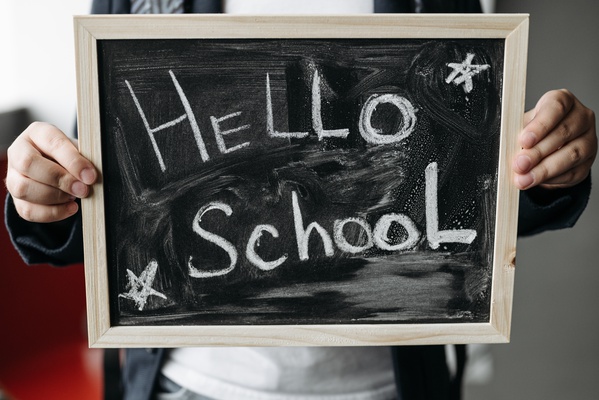Why you should consider your children attending public schools rather than homeschooling them

When it comes to your child's education, you want to be confident that you're making the best decision possible. When it comes to learning, however, each child is different, and what works for one child may not work for another. Many parents who are worried about their children's education opt to homeschool them. If you're considering homeschooling, learn about the advantages of public education over homeschooling; you might just change your mind.
What is the definition of homeschooling?
In its most basic form, homeschooling is simply schooling your children from home. In recent years, homeschooling has become a progressive trend, with an increasing number of parents opting to homeschool their children rather than sending them to public school. A parent may opt to homeschool their child for a variety of reasons, including the following:
- The family's religious beliefs may differ from those taught (or not taught) in public education. You can choose whether or not to include religion in your homeschooling.
- For special-needs children, homeschooling may provide more specific educational attention.
- Parents' educational beliefs may differ from those of public-school officials and teachers. You get to choose which philosophies to follow when you homeschool.
- Children may make more progress in a homeschool setting than they would in a regular school one.
- Homeschooling can help to foster a more familiar relationship between parents and their children. Many parents enjoy spending extra time with their children when they homeschool.
- Local public-school options may not provide the desired level of educational excellence.
- Because you don't have to transport your children to and from school every day, homeschooling can save you time. For children, the school day can be cut in half.
When authors like Raymond Moore and John Holt began writing about educational reform in the 1970s, the homeschool movement took off. Homeschooling was a relatively new alternative education option at the time, but research estimates that more than 2 million students in the world are now home-schooled each year. Every year, that number rises by as much as 7% to 15%.
The Benefits and Drawbacks of Homeschooling Your Children
Homeschooling is permitted in most counties, but you must meet certain conditions. Parents are expected to select or construct an educational program that meets state-mandated educational criteria. Parents have more educational freedom with homeschooling than with public school as long as those standards are met. With homeschooling, children may have more options for what they learn and can learn at their own pace without having to keep up with more advanced pupils. Homeschooling allows parents to include religion in their children's education while also promoting family harmony.
One of the primary disadvantages of homeschooling is that planning and implementing educational techniques takes a lot of time. In most households, one parent must devote their full attention to homeschooling their children – it might be difficult for a single parent to succeed at homeschooling. Homeschooling may impose a financial strain on the family's finances if one parent is unable to work. Children who are home-schooled may have fewer opportunities for extracurricular activities, such as athletics, and may not have as many social connections as children who attend public school. Of course, there are workarounds for these issues, but they remain obstacles associated with homeschooling.
The Advantages of Public vs. Homeschooling
Now that you've learned a bit more about homeschooling and its benefits and drawbacks, you might be wondering how public school compares. Because each child is unique and has unique needs, public school may or may not be the best option. However, the only way to know for sure is to understand more about the potential benefits of public education versus homeschooling. Here are some of the most important advantages to consider:
- A built-in framework exists in public schools. Children, especially small children, thrive on routine and require a great deal of care and attention. If you're a stay-at-home mom who wants to homeschool your children, you could find it more difficult than you think.
- Public schools generally have the resources to provide additional academic options, such as advanced classes and courses in specialized disciplines such as technology and the arts. Gifted and talented programs, the International Baccalaureate, and Advanced Placement classes are all possibilities. Students who want to achieve will have a variety of options, while those who are not interested in academic acceleration will have options as well.
- Many public schools provide athletics and elective alternatives such as art and music. However, homeschool children may not have access to these programs.
- A public school instills in youngsters a sense of self-reliance. Children must keep track of their own class schedules, find their way from one class to another, purchase their own lunch, and make it to and from the bus every day, depending on their grade.
- Teachers at public schools must have a bachelor's degree in education and may have additional experience working with and teaching children. Teaching a child differs from raising a child, and many parents find it difficult to do both at the same time.
- Public school is usually less expensive than homeschooling. A homeschool curriculum alone can cost $1,000 or more, not to mention materials. You must purchase supplies for a public school once or twice a year, and you can save money by packing your child's lunch.
- Many homeschool students have fewer opportunities for social connection than children who attend public school. Although there are certain homeschool co-ops that can be beneficial, a public school has social benefits built in.
- Pupils in public schools and private schools perform similarly on standardized tests. In some circumstances, they outperform charter school kids. While some public schools have poor performance, these schools are frequently located in areas with high poverty rates. When it comes to student demographics, public schools are right up there with other types of schools when compared apples to apples. While many people are dissatisfied with the status of public schools today – and with good reason – the majority of pupils in the system still benefit from them. It's no surprise that public schools provide so many advantages.
- While many people are dissatisfied with the status of public schools today – and with good reason – the majority of pupils in the system still benefit from them. It's no surprise that public schools provide so many advantages.
- Sending your kids to public school allows you to focus on being a parent. Being a teacher and a parent at the same time can be exhausting and difficult, especially if you have other children who aren't in school.
- The state holds public schools accountable for their academic performance. While some have claimed that this has resulted in an excessive amount of standardized testing, schools do have a higher authority to which they must answer. This avoids misuse and allows failing schools to be managed far more swiftly than if they didn't have such accountability.
- Public school provides you and your child with much-needed time apart, which helps to promote independence in your child while also providing you with a break. There's nothing wrong with needing a vacation from your kids now and then.
- Public schools accept all children from the community, those who attend are more likely to be placed in classrooms with children who do not think, act, or look like them. Peers are more likely to be exposed to students from other cultures or socioeconomic backgrounds. They may be taught how to collaborate with pupils who have mental and physical challenges. For all of the children who attend a specific school, the diversity of the student body can be a valuable learning experience in and of itself.
- Public schools are not allowed to reject children based on their academic performance, income level, or disability. This assures that every kid in a community, regardless of their current personal condition or finance, has access to the same educational opportunities as their neighbors down the street. Because education is generally viewed as society's great equalizer, making education accessible to all is a crucial benefit these institutions provide.
- Public education has some drawbacks in addition to the advantages described above. Public schools, for example, have a stricter and more controlled schedule than most homeschool programs, and kids may not have as much freedom and flexibility to customize their education. Your child may be better off in public school anyway, unless you can completely commit to establishing and implementing a quality homeschool curriculum.
While there are numerous advantages to attending a private school rather than homeschooling, each scenario is unique. A public school may be the best option for your child, while homeschooling may be the best option for another. You might even discover that one of your children thrives in one environment while the other thrives in another. As a parent, it is your responsibility to meet your child's needs to the best of your ability. This frequently entails making concessions or attempting to make the best of a bad situation. You will make the appropriate decision if you keep your child's best interests in mind.
Attending public school has its own set of difficulties, and homeschooling is not always the best option. Take the time to carefully study and investigate all of your alternatives before deciding to homeschool your child. You might discover that public school is a better alternative than you previously thought-the choice is yours to make the most of it.



Comments